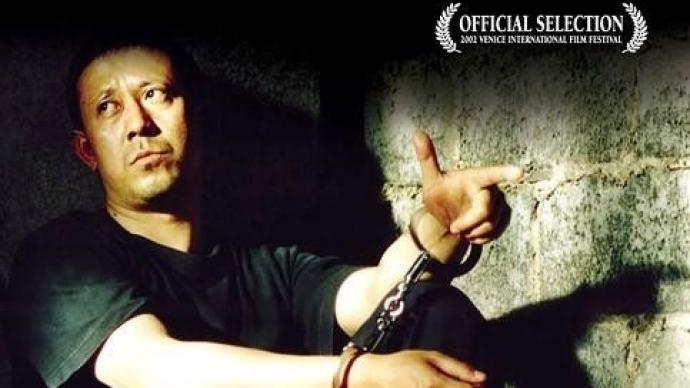
Twenty years ago, in 2002, Chinese films had just embarked on a market-oriented revival.
At the end of the year, the iconic commercial blockbuster "Hero" opened the ladder for the total box office increase in the future. The market has been growing rapidly year after year. In the past few years, China has become the second largest global movie ticket warehouse after the United States. In addition to the launch of giant commercial productions, a small-budget film "Looking for Guns" released in May 2002 also indicates that in the not-too-distant future, a whole new group of young filmmakers will break the traditional film production channel. , and entered the stage of blooming flowers in which the creative way is freer and more vigorous.
Not only are filmmakers bred for the take-off of the film industry, but the industry that is about to flourish is also looking forward to the joining of new creators.
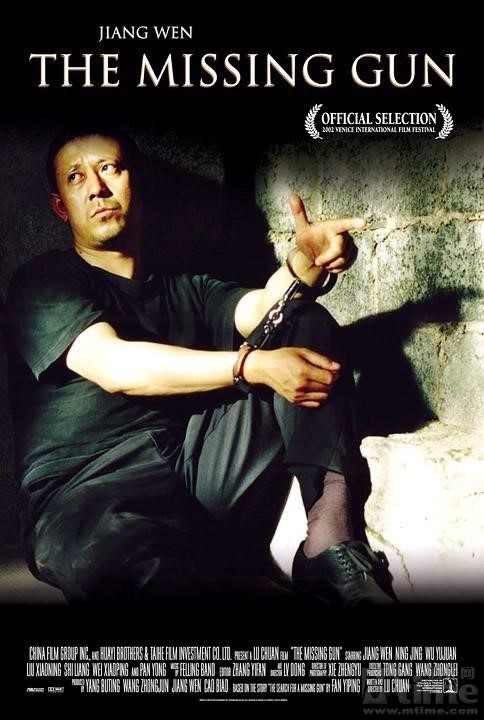
"Looking for a Gun" poster
"Looking for a Gun" is the film debut of 31-year-old director Lu Chuan. The story is adapted from writer Fan Yiping's "Looking for a Gun". It describes the policeman Ma Shan who accidentally lost his gun in a border town. He was under great pressure to find the lost gun, and finally fulfilled his duty at his own sacrifice. The story of the film is believed to be inspired by Akira Kurosawa's early work "Wild Dog", and was adapted and created by Lu Chuan himself based on the novel. The final film is unique in its artistic style. The dark humor and restless features made the film widely acclaimed once it was released, brought some awards to Lu Chuan, and became a memorable work.The special feature of "Looking for Guns" is not only the unique creative style in art, but also all kinds of rumors about the production process, all of which bear the distinctive imprint of the times. These creative stories, which combined the characteristics of the film industry of the day, have also been preserved with this film.
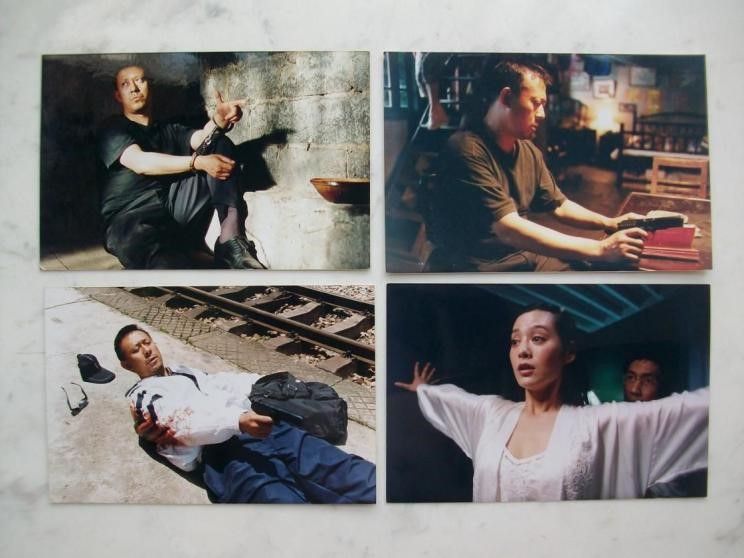
"Looking for a Gun" stills
For example, among moviegoers, there is a widely circulated mysterious saying about the film that in addition to the existing domestic release of about 90 minutes, there is also a 120-minute American version. This version, however, was never actually seen.In fact, if you have some understanding of the film industry, you will understand that because this film is mainly invested and produced by China Film Group and Huayi Brothers, there is no foreign investor, and there is no history of large-scale release abroad, then the so-called special supply "American" ” version, it is not necessary to make it. Even if there is a different version from the final film, it may be only the initial editing stage of the film, and the length is relatively loose, and it is provided to relevant personnel for review to determine whether it is possible to sell the film or use it to participate in the preliminary rough version of the film festival.
In fact, this kind of intermediate version of the editing of different lengths, every film has more or less. And only "Looking for a Gun" has such rumors circulating, which is something worth pondering about.
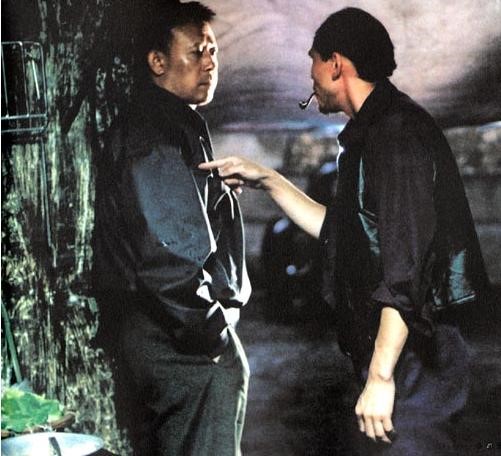
"Looking for a Gun" stills
For example, another widely circulated statement is that Jiang Wen, the star of the film, is the real director of the film. Because from the perspective of artistic style, the unique black temperament of the film is more in line with director Jiang Wen's wild and uninhibited artistic characteristics, rather than the calmness and restraint that Lu Chuan has shown in the director's creation for more than ten years after that. Although this statement has never been recognized by the parties in various program interviews in the future, it has always been believed by many fans to be true.These rumors are not meaningless chasing shadows, suggesting that during the creative process, different main creators have had fierce creative differences on issues such as the style and performance of the film.
These differences, in fact, have appeared to some extent in the early stages of each new director's creation. For example, many young directors in Hollywood are dissatisfied with the creative restrictions imposed by big production companies, and have more or less given up the final authorship. And today, this kind of creative lawsuit also appears frequently here. However, in the "planned economy film stage" in which film studios were the main body of creation in my country in the last century, these differences were always just the internal work of the creation unit, and were almost unknown to outsiders. And these rumors from "Looking for Guns" seem to put artistic differences and contradictions on the table.
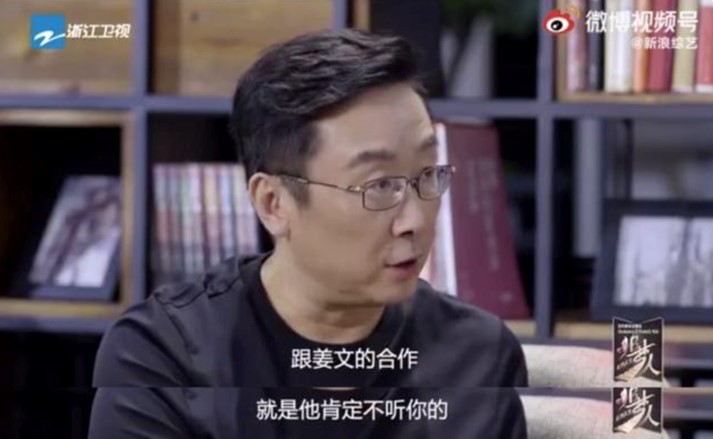
Lu Chuan recalled the shooting process of "Looking for a Gun" in the interview
The beginning of things goes back to 3 years ago. In 1998, Lu Chuan just graduated from the Beijing Film Academy with a master's degree in directing. Soon, his main script "Black Hole" was directed by Guan Hu, a senior brother in the director department, and it became a well-known masterpiece of the year. This TV series with the theme of anti-black and anti-corruption has gained social influence and word-of-mouth success no less than "In the Name of the People". It brought a lot of success to Lu Chuan, a new film and television actor who just left school. Of course, many of them are due to Lu Chuan's own extraordinary creative talent and accumulation, and I believe it is also due to the subtle influence of his father Lu Tianming's many previous realist creations.However, from a good screenwriter to a director, it is still not an easy thing. Before 2000, Chinese films were not as market-oriented as they are today. Not only was shooting funding a problem, but there were not many units that had the creative qualifications to shoot independently. At that time, film studios everywhere were still the mainstream of film creation. Even though a fledgling private film and television production organization like Huayi Brothers has emerged, its main director Feng Xiaogang is still inextricably linked with state-run film and television units like the TV Drama Production Center. All in all, film production at that time was still a crafting system that relied on film studios and needed to be polished for several years or even more than ten years before it had a chance to rise to the top. For a young creator like Lu Chuan, there is almost no chance to lead the director and become a "film director" recognized by the insiders.
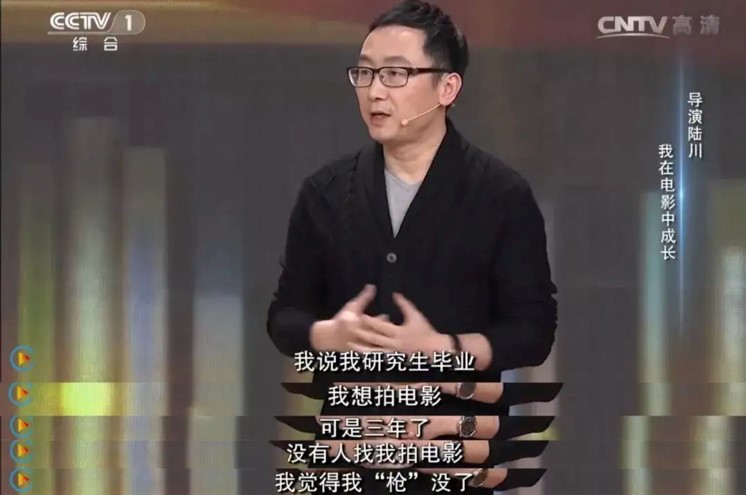
Lu Chuan talks about the opportunity for the shooting of "Looking for a Gun"
However, Jiang Wen brought Lu Chuan an opportunity. Jiang Wen, who was nearly 40 years old at the time, became China's best actor, the most popular actor with the most audience, and the most distinctive personality as early as more than ten years ago. At the same time, the two films he directed, "Sunny Day" and "The Devil Is Coming", also showed extraordinary artistic skills, and he was gradually recognized as a director with considerable artistic attainments. It is a pity that his second directorial work with a bold creative style, "The Devil is Coming" (2000), rashly participated in foreign film festivals without passing the censorship, which made Jiang Wen lose the right to direct the film for the next five years.Unlike today’s artists with moral taint or bad deeds who were spontaneously boycotted by the film and television industry and eventually faded out of the public eye, film and television creators who were in their prime, even the backbones such as Chen Kaige and Zhang Yimou, had to abide by the film studio’s internal regulations on subject matter and creation. Otherwise, once you touch the restricted area of creation, you will have to accept the punishment from the superior cultural administration. Just like Jiang Wen who was recuperating at home at that time.
Not letting the director, doesn't mean not letting the acting. Maybe at this time Jiang Wen is already obsessed with the creative path of the director, and he doesn't have much thought about appearing in more ordinary film and television dramas. However, Lu Chuan, a young screenwriter's script for "Looking for a Gun", accidentally moved Jiang Wen and made him decide to play the leading role again. Jiang Wen's appearance is undoubtedly a major event in the film and television industry, and it has also attracted the support of more investment and creative forces. The maturity of these internal and external conditions has really supported Lu Chuan from the screenwriter on paper to the seat of a young film director.
Including inviting actors Ning Jing to join, including attracting funds, including escort in artistic creation, these objective help for film production, all make Jiang Wen really undertake the "supervisory" work on the film's credits, unlike many today's film and television dramas Based on various considerations such as film sales and promotion, the producers and big-name actors have made some actors a nominal "supervisor".
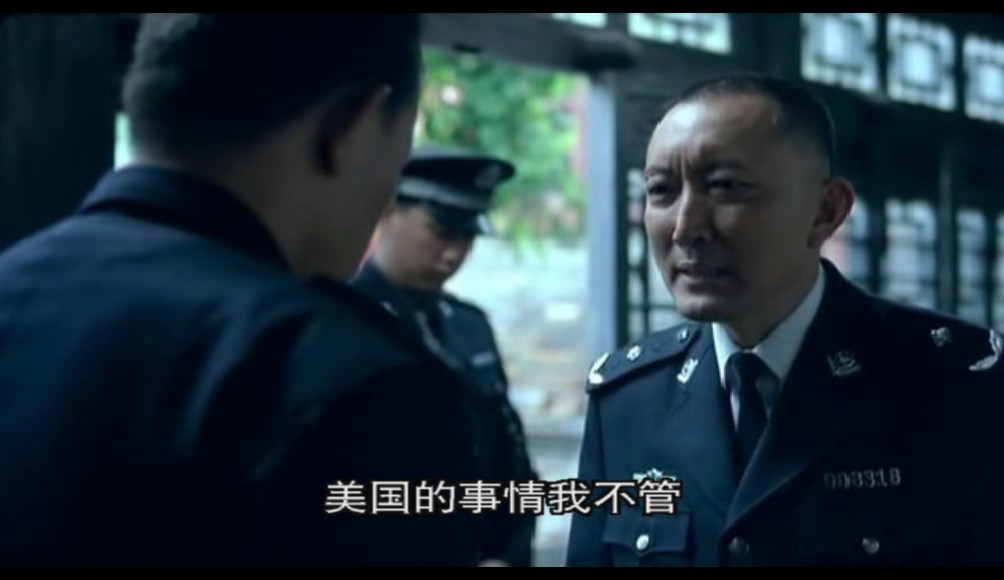
Han Sanping, who was the second-in-command of China Film Group at that time, was not only the producer of the film, but also ran a little trick.
These twists and turns in the preparation of the film reflect how many coincidences and difficulties there were when a film project entered the actual shooting and production from conceptual creativity at that time. Of course, the birth of any film and television work today is more or less behind. full of drama. It's just the drama of the day, with the characteristics of the times of the day.Although the film was successfully launched, when it entered the actual shooting, the complexity of the film, as an industrial art product in which multiple creators cooperated and wrestled, cannot be explained clearly in one or two sentences. Maybe even the parties themselves don't know what kind of role they want to play. It can only be said that all parties are working hard to realize their own creative intentions, and what can be retained in the end is determined by each person’s different creative strength and influence.
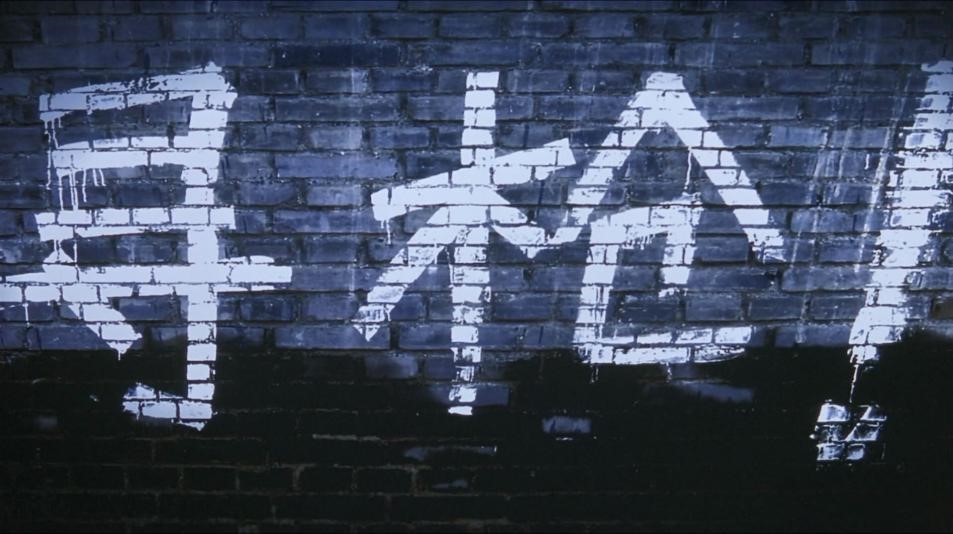
"Looking for a Gun" stills
"Looking for a Gun", from the perspective of industrial production, the director's signature completely belongs to Lu Chuan. However, the film uses a large number of mobile photography and sharp editing techniques, resulting in the final restless temperament; several bold artistic shapes and psychological lens designs present a dreamlike and realistic narrative effect, all of which were directed by Jiang Wen before. approach used in both works. There is no doubt that these finished film effects are due to the shooting design of Jiang Wen and the photographer at the shooting site, as well as the addition of the joint creative opinions of Jiang Wen, the producer and the editor in the post-production, which are not necessarily the artistic expression that Director Lu Chuan is most satisfied with himself. .Director Lu Chuan's favorite film style is "Kekexili" two years later, in which he was able to take full control of the creative process and brought him great success and reputation-in the calm and restrained documentary-like language, there is a huge amount of violence hidden With the sense of confrontation, tension breeds in tranquility. After that, he continued to control most of the works, such as "The King's Feast" and "Nanjing! Nanjing! ” or “Nine-layered Demon Pagoda”, but with an artistic style similar to “Kekexili”, it has obtained poor market effects and word-of-mouth evaluation.
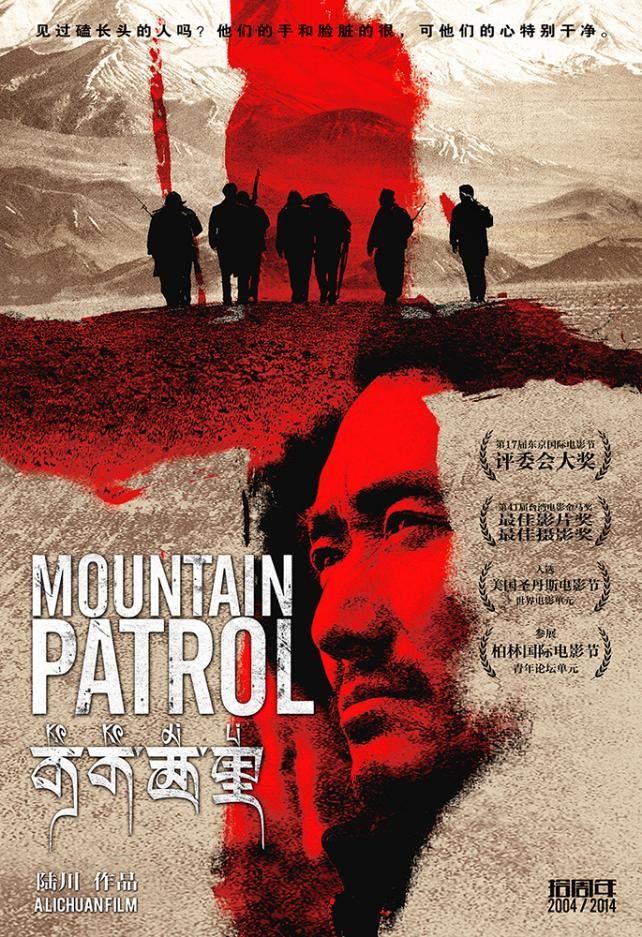
"Kekexili" poster
The success of "Kekexili" two years later enabled Lu Chuan to truly obtain the creative resources needed by a film director. However, the level of his subsequent works seems to be no longer as high as he once had.In this sense, "Looking for Guns" is a product of mixed styles, which belongs to the joint creation of Lu Chuan and Jiang Wen. Several of its plot paragraphs are not only outstanding in style, but also have vivid lines and interesting performance designs, showing a sense of vigor and freshness that is different from most films. However, in the latter part of the film, there are a lot of simple psychological trance descriptions of the missing police officer Ma Shan. Although the style is unique, he gradually loses his control over the smoothness of the story. Some plots appear abrupt and unclear. It was even interpreted by some fans as "Ma Shan is a schizophrenic figure, the real perpetrator of the lost gun and the murder". These brain-opening holes that are too unrealistic outside the creation of the film are actually because the film does not clearly understand the plot that should be explained.
The film's strengths and weaknesses are equally evident.
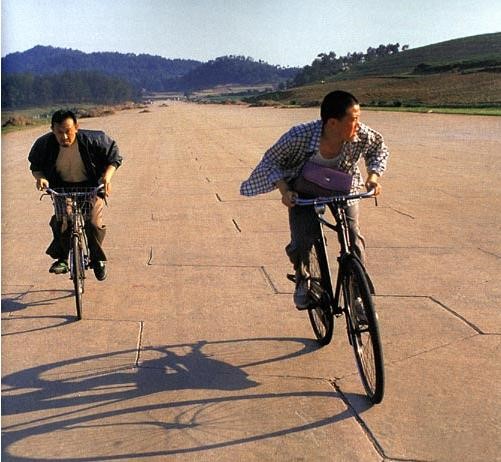
A very expressive comedy car chase. The police chase the thief, the sense of proportion is between exaggeration and realism, which is very interesting.
Sometimes, the collaboration of creators with different ideas can give a movie a bonus, creating a captivating and unique style. Sometimes, these different ideas all stay, but appear chaotic and stylistic. "Looking for a Gun" is such a work.However, the production method of "Looking for a Gun" can be said to be an acceptance and attempt for new film and television people at the beginning of the renaissance of the film market. With the help of the elderly, the newcomers who are still inexperienced are trying hard to gain a firm foothold and form their own artistic style.
This market-oriented plot-oriented element, an artistic style that combines dark humor and lively performances, has been carried forward by "Crazy Stone" four years later, which may also be an intentional or unintentional reference and influence. After that, more similar black absurd comedies, and even now, are no longer the subject of small-budget films, but have become the style favored by more big-budget comedy films.
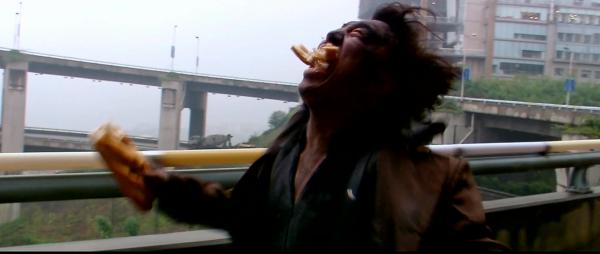
There is also a hilarious chase scene at the end of "Crazy Stone". It doesn't really matter if there is any actual reference. Movies are originally the product of the fusion and influence of popular styles in a period of time.
Twenty years ago, young directors such as Lu Chuan opened up a newer and more free path to higher positions, and also tried some new artistic styles in a way that was different from the traditional film and television production industry. This is an increasingly prosperous market, full of fresh vitality.In the past few years when the global epidemic has been repeated, the film and television industry has also been affected, and this cultural vitality has gradually been reduced. Although today's movies look lively, most of them are harmless popular comedies or adaptations of foreign themes, losing the possibility of more original styles.
It is hoped that the revival of the Chinese film market in recent years will not end, but only take a short sigh of relief, which is the beginning of another wave of cultural innovation in the future.